Croatia is 8th Largest Exporter of Footballers in the World!
May 10, 2022 - Croatia is the 8th largest exporter of footballers in the world!
Namely, 400 football players from Croatia play abroad in 135 professional leagues worldwide. According to those statistics, Croatia is the eighth largest exporter of footballers in the world, reports Slobodna Dalmacija.
One of the few Croatian industries that are very competitive globally is football. Even though there are less than 4 million inhabitants, hardly any adequate infrastructure, stadiums, or pitches, coaches in the younger categories are often underpaid, and laws do not adequately support investments in sports, Croatia is a real football miracle - especially when you factor in it was the 2018 World Cup finalist.
Croatia is at the top of the world in producing and exporting quality footballers and is the fifth largest European exporter. A recent study by CIES, the International Institute for Sports Studies in Neuchâtel, Switzerland, analyzed the 80 football federations with the most significant number of players abroad in 135 world leagues. The five years from 1 May 2017 to 1 May 2022 were analyzed. That last date was taken as a reference, while this research was done five years earlier for the first time. The study included 135 world professional leagues (83 from Europe, 20 from Asia, 18 from South America, 10 from North and Central America, and 4 from Africa), or 2198 clubs.
As expected, the most footballers playing outside, in these leagues, on May 1 this year were Brazilians (1219). It is no surprise that the current world champion France follows (978). The world’s third-largest exporter of footballers is also predictably Argentina (815). Brazilians and Argentines are the most famous representatives of South American football and have long been known as class players. It isn't easy to find a league in which they are not strongly represented. England (525) is on the list of a vast number of footballers who play in other leagues in the United Kingdom and Ireland, and Germany (441) has a significant number of players of Turkish origin who were born and live in Germany but play abroad, even in the homeland of their parents and ancestors. The highest percentage of foreign players from one country is Belgians in the Netherlands (29.6 percent).
On average, teams had 6.3 foreign footballers (22 percent). As far as Croatia is concerned, this is an increase of 25 percent compared to the identical analysis made five years earlier, on May 1, 2017, or an increase of 81 footballers. Five years ago, 319 football players from Croatia were in the mentioned leagues.
In addition to quality, Croatia has also shown incredible quantity, given that according to the latest census, it has only 3.88 million inhabitants. For comparison, the world's largest exporter of football players, Brazil, has 212 million inhabitants, France 65 million, Argentina 45 million, England 56 million, Germany 83 million, Colombia 50 million, and Spain 46 million. Behind Croatia are the great football nations such as the Netherlands, Portugal, and Belgium.
The favorite destination of Croatian footballers abroad is Slovenia, with 102 Croatian footballers. The next leading destination is the neighboring Bosnia and Herzegovina, with 49 players.
Top 10 largest exporters of footballers in the world
1. Brazil 1219
2. France 978
3. Argentina 815
4. England 525
5. Germany 441
6. Colombia 425
7. Spain 409
8. Croatia 400
9. Serbia 379
10. The Netherlands 367
To read more about sports in Croatia, follow TCN’s dedicated page.
Constitutional Court President Calls on Parliament to Pass New Abortion Law
ZAGREB, 10 May 2022 - Constitutional Court president Miroslav Šeparović said on Tuesday that parliament had still not acted on the court's decision regarding a new abortion law and called for its adoption.
The Constitutional Court found on 21 February 2017 that the law from 1978 regulating pregnancy termination is in line with the Constitution, he told N1 television.
The court ordered parliament to adopt a new law within two years that would stipulate educational and preventive measures in order to make pregnancy termination an exception, because the valid law is obsolete and was passed in the previous political and social system, said Šeparović.
The fact that parliament has still not executed the court's decision is not a good message, given that the court's decisions are mandatory, he said.
Therefore, the Constitutional Court expects its decision to be executed and parliament to adopt a new law which will be in line with the court's findings, he added.
Croatia Close to Receiving €700m from Recovery and Resilience Facility
ZAGREB, 10 May 2022 - The European Commission on Tuesday endorsed a positive preliminary assessment of Croatia's payment request for €700 million in grants under the Recovery and Resilience Facility (RRF).
"I have good news for Croatia: as soon as Member States give their green light, it will receive €700 million in grants under NextGenerationEU. Croatia has made swift progress in implementing the reforms and investments of its national recovery plan," European Commission President Ursula von der Leyen said.
Croatia, she added, "has taken important steps to strengthen the labour market and enhance social protection... adopted a national programme for the energy renovation of buildings and a plan to improve road safety. This is the first payment, and more will come. So keep up the good work and congratulations!"
On 15 March, Croatia submitted to the Commission a payment request based on the achievement of the 33 milestones and one target selected in the Council Implementing Decision for the first instalment. They cover reforms in health, social policy, adult education, public administration, anti-corruption, fiscal, audit and control, anti-money laundering, energy, transport, water and waste management as well as energy efficiency of buildings.
The Croatian authorities provided detailed and comprehensive evidence demonstrating the fulfilment of the 34 milestones and targets. The Commission has thoroughly assessed this information before presenting its positive preliminary assessment of the payment request.
The Croatian recovery and resilience plan includes a wide range of investment and reform measures in six thematic components. The plan will be supported by up to €6.3 billion in grants, 13% of which (€818 million) was disbursed to Croatia in pre-financing on 28 September 2021.
Payments under the RRF are performance-based and contingent on member states implementing the investments and reforms outlined in their respective recovery and resilience plans.
The Commission has now sent its positive preliminary assessment to the Economic and Financial Committee, which has four weeks to deliver its opinion. After that, the Commission will adopt the final decision on the disbursement of the financial contribution, in accordance with the examination procedure, through a comitology committee. Following that decision, the disbursement to Croatia can take place.
"This is an important moment in the roll-out of Croatia's ambitious recovery and resilience plan. Our positive preliminary assessment of Croatia's first payment request found that the country has successfully implemented the required 34 milestones and targets. These include a new Energy Efficiency Programme and a Waste Act that will support the green transition, as well as a number of measures to enhance education, employment and social protection," said Economy Commissioner Paolo Gentiloni.
Government Adopts Code for State Officials to Self-Assess their Conduct, says NGO
ZAGREB, 10 May 2022 - Only two of the five members in the council monitoring compliance with the code of conduct of state officials adopted by the government are independent experts so it seems that state officials will self-assess whether their conduct is ethical, the GONG civil society oganisation said on Tuesday.
The other three members are two state officials in the executive authority and a civil servant from the ruling majority, GONG said, recalling that the code stipulates the principles of protecting the public interest and maintaining citizens' trust as well as the rules of exemplary conduct and rational use of public resources.
The government adopted the anti-corruption code after one of the key anti-corruption bodies, the Conflict of Interest Commission, was weakened, the NGO said.
The Commission lost its authority to decide on violations of the principles of conduct because, as explained by Justice Minister Ivan Malenica, it was not set up as a body of ethics, GONG said.
The government replaced independent oversight which the Commission did when it opened cases against government members, with a political body in which experts are in the minority, GONG said.
In order for the code of ethics to help protect office-holders' integrity, there has to be a body responsible for monitoring the code's application, as said in the latest report by GRECO, the Council of Europe's anti-corruption body, the NGO said.
Instead of strengthening the independent Conflict of Interest Commission and specifying its authority over compliance with the principles of conduct, the government has established a council only for form's sake and to muddy the contents, GONG said.
Some People Renouncing Croatian Citizenship, Here's Why
May the 10th, 2022 - Some people have been renouncing their Croatian citizenship, and we've had a far better look into precisely who has done that owing to the census taken back in 2021.
As Poslovni Dnevnik writes, according to the latest census which was conducted last year by the Central Bureau of Statistics (CBS), the Republic of Croatia has a resident population of 3,888,529 million people. As for those who renounced Croatian citizenship in 2021, 154 people were released from citizenship, and four more people simply renounced their citizenship.
In the first four months of this year, twice as many people renounced their citizenship, according to a report from N1. In the period from January the 1st, 2022 to May the 1st, 2022, 86 people were released from Croatian citizenship, while eight people renounced it, as was confirmed the Ministry of the Interior (MUP). According to the law, adult Croatian citizens who reside abroad and also have foreign citizenship may renounce their citizenship if they so wish, as they won't be made stateless by doing so.
The most common reasons for applying for the renunciation of Croatian citizenship are personal reasons, employment and education, said the Ministry of the Interior.
In order for a Croatian citizen to renounce their citizenship, a statement from the person who will then voluntarily lose (renounce) their Croatian citizenship on the day of giving the statement is sufficient. It is very important to note that in this case, an adult cannot regain Croatian citizenship after renunciation.
The Ministry of the Interior also clarified how much this process costs. If the application for termination of Croatian citizenship is submitted in the Republic of Croatia, an administrative fee is charged according to tariff number 9, paragraph 1 of the Decree on the Tariff of Administrative Fees (Official Gazette 92/21, 93/21 and 95/21) in the amount of from 2,520.00 kuna.
An administrative fee according to tariff number 43 of the Decree on the Tariff of Administrative Fees in the amount of 3,150.00 kuna is charged for an application for termination of Croatian citizenship submitted to a diplomatic or consular mission of the Republic of Croatia abroad. This tax covers all administrative and consular actions in the procedure of termination of Croatian citizenship, as stated by the Ministry of the Interior.
For more, check out our politics section.
Metsola: Croatia Should Join Schengen Swiftly, All Else Would be Shameful
ZAGREB, 10 May 2022 - Croatia should be admitted to the Schengen Area swiftly, during the French EU presidency, and any blockade would be shameful, European Parliament President Roberta Metsola has told Hina.
Not one member state should block Croatia, she added.
I will answer as a politician, I'm tired of talks with countries which have spent years trying to meet the criteria and when they do, there is no political decision. I think it would be shameful if that next step is not taken, she said about Croatia's Schengen entry.
Metsola thinks it would be important if that took place during the French EU presidency, which ends on 30 June.
Member states should not hide behind technical reasons when the motives are political, she said, adding that the decision on admitting Croatia to Schengen should be full and swift.
There is speculation that Slovenia, which has an unsolved territorial dispute with Croatia, might block Croatia's entry.
Its future prime minister Robert Golob has said that he will insist on honouring the border arbitration from which Croatia withdrew due to Slovenia's covert influence on the judges. The likely foreign minister Tanja Fajon said as an MEP last year that Croatia was not ready for Schengen.
Reviewing EU Treaties
Thirteen member states, including Croatia, do not support a proposal to change the EU treaties, which is one of the conclusions of the Conference on the Future of Europe supported by French President Emmanuel Macron and Commission President Ursula von der Leyen.
Bulgaria, Croatia, the Czech Republic, Denmark, Estonia, Finland, Latvia, Lithuania, Malta, Poland, Romania, Slovenia and Sweden feel that the EU can successfully manage crises as part of the current treaties, as proven by the fight against COVID-19 and the response to the Russian aggression on Ukraine.
In a non-paper, they criticise the European Parliament, without mentioning it explicitly, for instrumentalising the Conference on the Future of Europe for its institutional interests.
Metsola said the EU treaties should be changed only in some areas while in others, such as migration, tools were available which the EU was not using.
We should change where it is necessary and we should not be afraid of that, she added.
Negotiations on issues such as veto rights will be difficult but the Parliament will be very open to all options on the table, she said.
Supporting European political community
French President Emmanuel Macron yesterday pushed for creating a European political community to increase the EU's cooperation with other European countries whose accession is not realistic in the near future.
He feels that cooperation with them only through European integration blocks energy, cultural and other forms of cooperation to a certain extent.
If it's possible to go step by step towards integration before full membership, Parliament will support that, said Metsola. European integration is more a question of how we do something than of a date, she added.
Metsola also said that the sanctions against Russia should be fully complied with not only by all member states but also those wishing to join the EU.
My Songs: Sting Zagreb Arena Concert Rescheduled for October 31, 2022
Maay 10, 2022 - The Sting Zagreb Arena concert will take place on October 31, 2022!
Cherrytree Music Company, Live Nation, and Charm Music are pleased to announce the recently postponed Sting concert on October 31, 2022, at the Zagreb Arena. Sting was supposed to perform at the Zagreb Arena on March 21, as part of his acclaimed 'My Songs' tour, where he performs his favorite songs written during the famous career of this 17-time Grammy Award winner, both with The Police and as a solo artist.
Hailed as a “masterful performance from start to finish,” the concert “takes fans on a musical journey through time,” with hits like “Fields of Gold,” “Shape of My Heart,” “Roxanne,” and “Demolition Man” and makes one an unforgettable event. Of course, fans can also expect "Englishman In New York,” “Every Breath You Take,” “Message In A Bottle,” and many of Sting’s other big hits.
After a sold-out six-day residency at London’s Palladium, The Times declared My Songs “masterclass”; "Sting remains undoubtedly a skilled performer with a golden catalog of songs." The Telegraph described the concert as a "rare treat," and The Guardian praised Sting as "almost flawless" with "sublime pop alchemy." A special guest and frontman for Sting will be his son, musician Joe Sumner.
Late last year, Sting released the acclaimed album The Bridge, which presents different stages and styles from his unrivaled career and draws inspiration from rock'n'roll, jazz, classical music, and folk. Written and recorded in the year of the global pandemic, this new collection of poems reveals Sting’s reflections on personal loss, separation, lockdown, and extraordinary social and political turmoil.
Tickets are on sale through Eventim.hr and at Eventim sales points. Tickets for the previously scheduled performance will also be valid for the new event date. Ticket returns are possible until June 9, 2022.
Ticket prices for the following categories are: stand I 550 kn, stand II 360 kn, stand down I 560 kn, stand down II 390 kn, stand down III 320 kn, VIP box 830 kn, front rows 830 kn.
For more, make sure to check out our dedicated lifestyle section.
Sinj Carnival Customs Presented at Together for Croatia Vukovar 2022
May 10, 2022 - Last weekend, Sinj carnival customs were presented in Vukovar at the All Together for Croatia - Vukovar 2022 festival.
Last Friday and Saturday (May 6 and 7) at the unique Festival of Intangible Heritage, Tourist Events, Attractions and Destinations All Together for Croatia - Vukovar 2022, the intangible carnival customs of Podkamešnica villages were presented through performances by members of the association "Didi s Kamešnice" - Gljev.
The festival All Together for Croatia - Vukovar 2022 is held to mark the City Day of Vukovar (May 3) and lasted until May 8. In cooperation with the City of Vukovar and the Vukovar Tourist Board, the organizers prepared this commendable event.
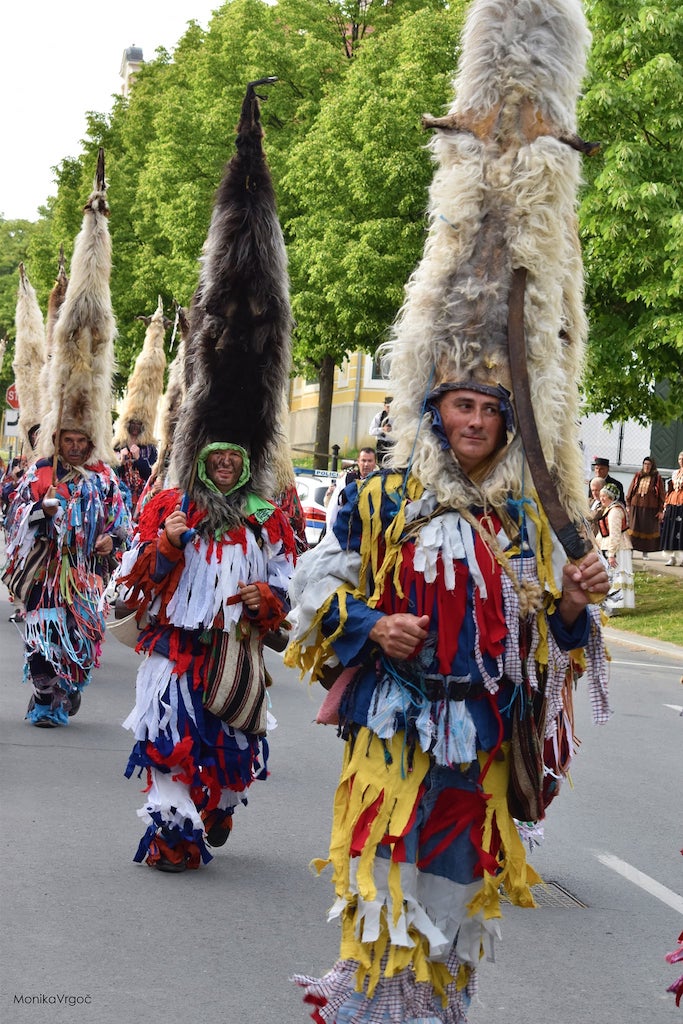
The festival was officially opened by Filip Sušac, Deputy Mayor of Vukovar, and the opening was attended by Marina Sekulić, Director of the Vukovar Tourist Board, His Excellency Ilan Mor, Ambassador of Israel, partner countries of the festival, prof. dr. sc. Dragan Primorac, MD, ambassador of this year's festival, then ambassadors of last year's festivals: Zlatko Dalić, Croatia national football team coach and Dražen Klarić, editor-in-chief of Večernji list, Msgr. Đuro Hranić, Archbishop of Đakovo and Osijek, Fr. Ivica Jagodić, guardian and administrator of the shrine of St. Filip i Jakov, Monika Vrgoč, Sinj Tourist Board director, Renato Labazan, director of the Tourist Board of Korpivnica.
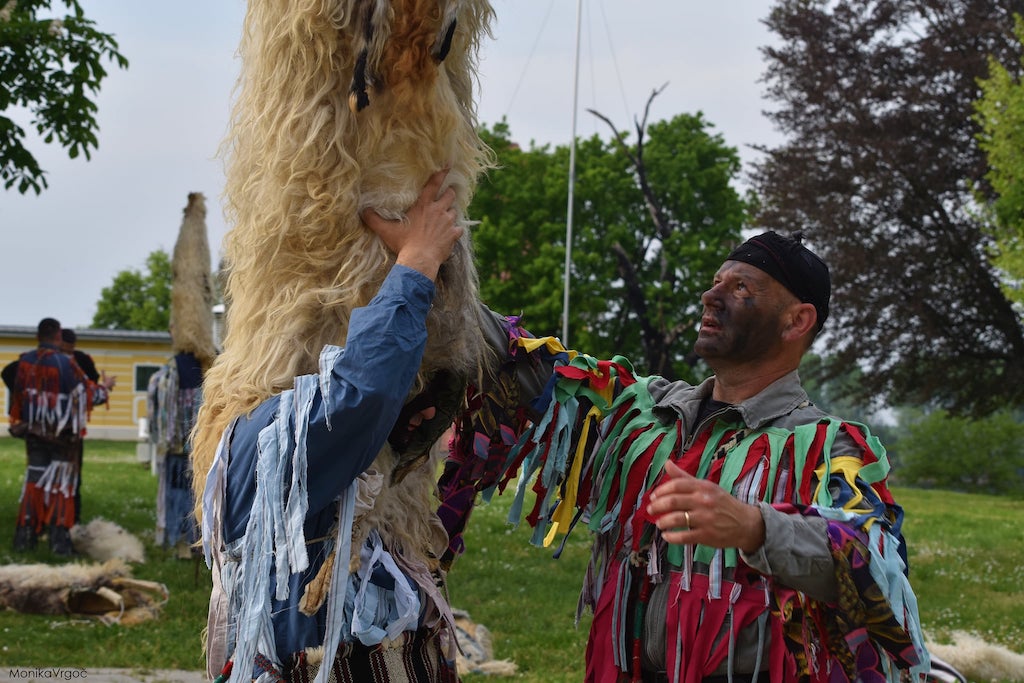
During the three days of the Festival, over 600 participants from all parts of Croatia participated in various programs at several locations: Dubrovnik, Sinj, Zadar, Omis, Varaždin, Koprivnica, Bjelovar, Rijeka, Sali, Korcula, Zagreb County, Slavonia and abroad, more precisely Bulgaria. Vukovar's streets and squares became a meeting place for different cultures, gastronomy and entertainment, presenting the best of Croatia's protected intangible heritage.
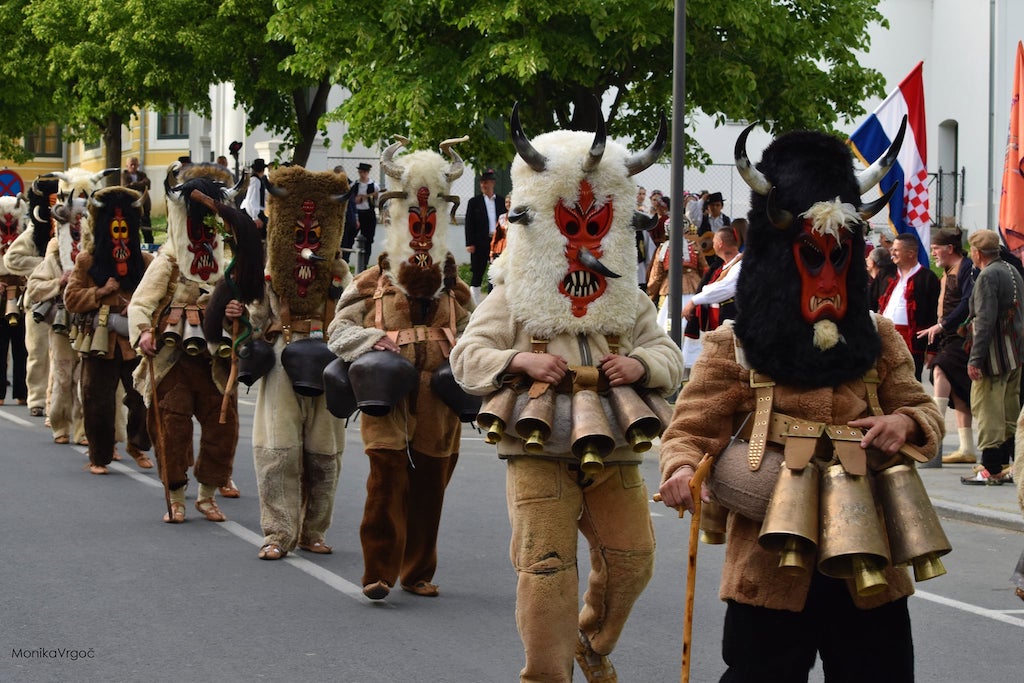
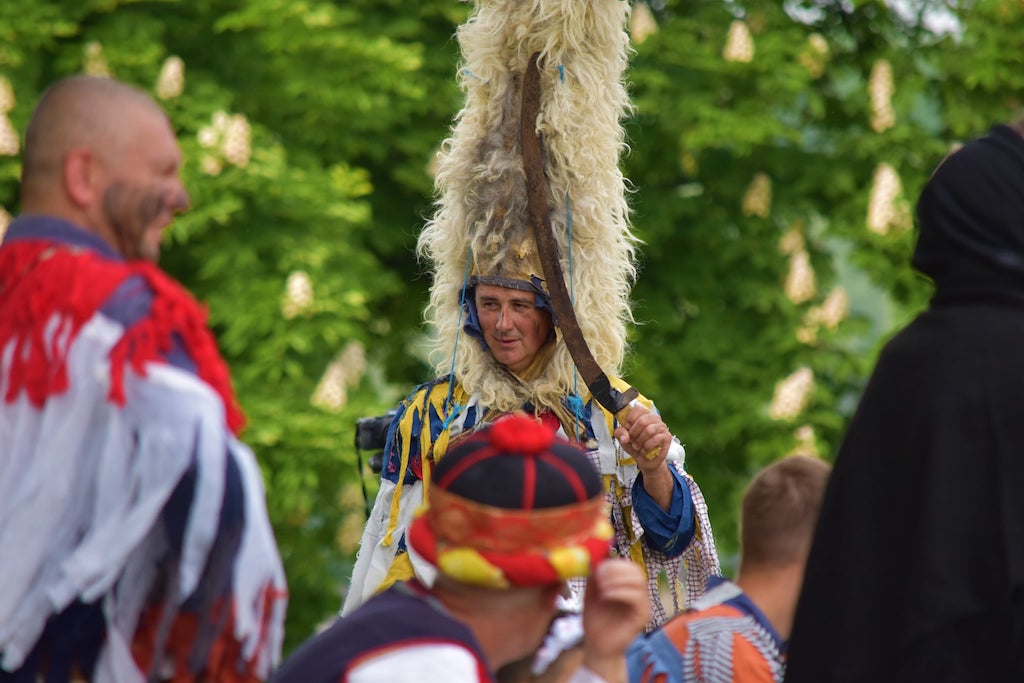
The city of Sinj, as always, gladly responded to the invitation. Thus, after their participation in 2018 and 2019 when Alkars and Alkar boys and City Music performed, this year is remembered through the performance of Ana Rucner and video screenings of the award-winning promotional film Alkar Pride.
This year Sinj continued presenting their rich intangible heritage with members of the association 'Didi s Kamešnice', in the lead role. In addition, they presented the carnival customs of Podkamešnica villages that are on the list of intangible cultural assets of the Ministry of Culture and Media of the Republic of Croatia. With this performance, 'Didi s Kamešnice' also additionally marked their 20th anniversary of active work as an Association in Vukovar - the city of heroes, the city of symbols of unity and strength.
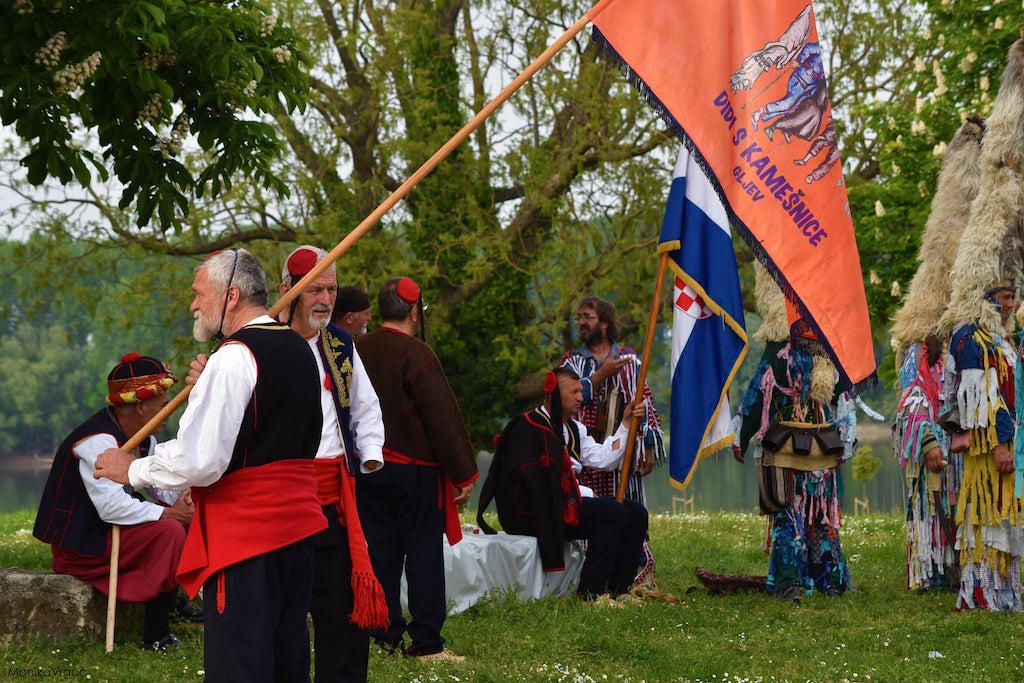
For more, make sure to check out our dedicated lifestyle section.
5+ Years Living in Split: Expat Marko Gómez Karadza from Peru
May 10, 2022 - In our new TCN series, we uncover the lives of expats that have spent over 5 years living in Split. Next up, meet Marko Gómez Karadza from Peru!
Two idyllic weeks on a Croatian beach is very different from the realities of full-time living. So what is it really like to live in Croatia as an expat? In a new series on TCN, we meet expats who have lived here for 5 years or more, to find out from them the good, the bad, and the ugly of 12-month living in Croatia. Next up, Marko Gómez Karadza from Lima, Peru.
1. Tell us firstly how you came to Croatia? What motivated you to choose this slice of paradise and how long have you now been here?
I came to Croatia being driven by the need to get connected to my roots, as I'm a Croatian descendant (my grandpa was Croatian). Initially, my idea was to spend 1 year here to enjoy the place, see my relatives and get more in touch with the culture. For that, I joined the program called "Croaticum" to also learn the language while I was sorting my Croatian documents, which also was part of my initial goal. Once I arrived in Croatia, it didn't take me more than 1 month to realize I would stay for way longer than planned. Currently, I have almost 6 years living in Split.
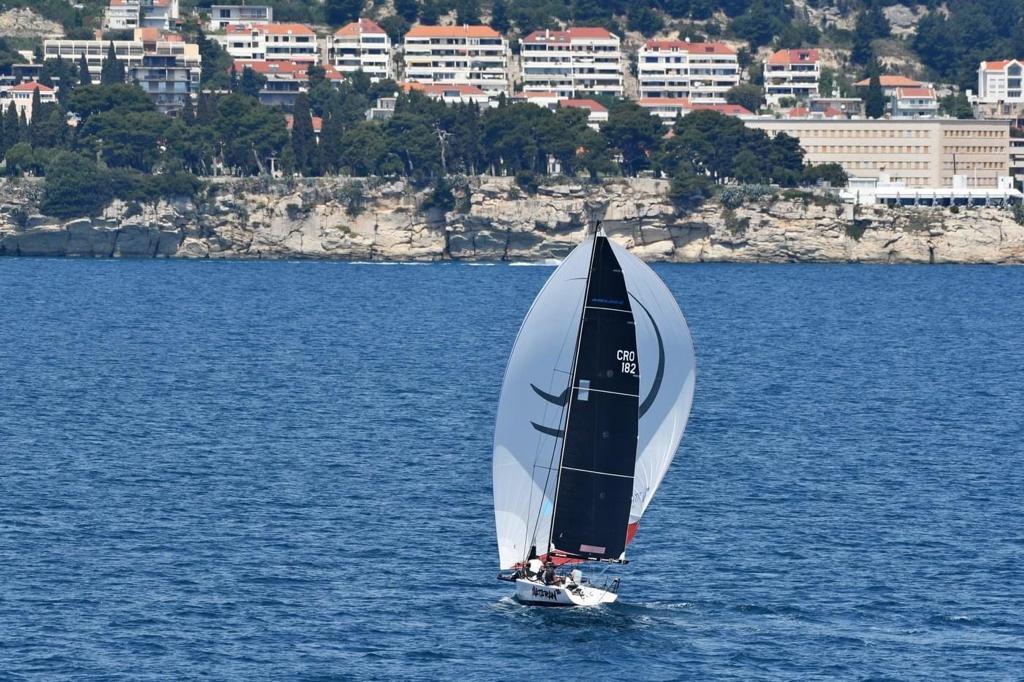
2. Looking back, what were your perceptions and expectations?
In terms of my expectations, I already knew how beautiful it was because of some pictures I saw beforehand, but once there I can say that reality surpassed my expectations! Also once here, I got to dive deeper into the historical heritage and culture which is impressive for someone that loves that kind of stuff and knew just a small portion of it. The food was also above my expectations in a very positive way.
3. After 5+ years here, how have those perceptions changed. Do you now view Croatia differently?
After 6 years living here, I have to say that my perceptions didn't change so much. It is true that I have a wider idea of how all works and happens in this country and I'm more aware of the pros and cons of living here, but I would say that your perception will change depending on where you are coming from. I see a lot of things that work way better here compared to my home country, other things are interestingly working in the same way and maybe some others could happen in a better way, but that is some encouragement to eventually help make a positive change on them.
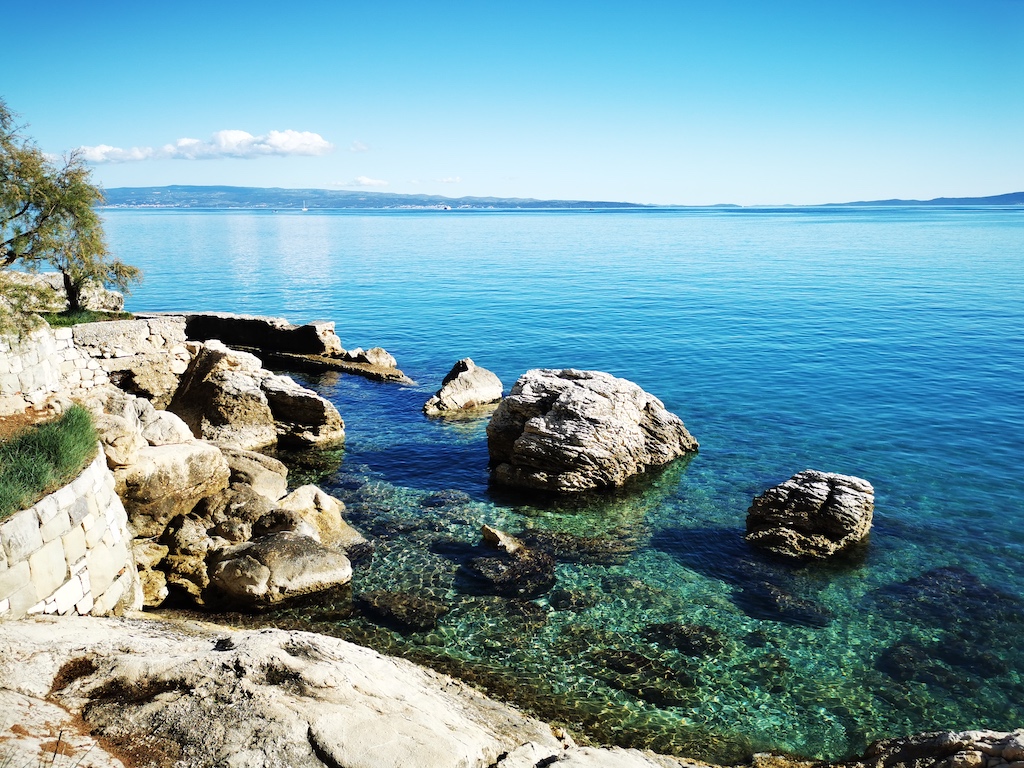
4. After your time here, the 3 things you love most about Croatia?
After 6 years I can say that the 3 things I love most about Croatia are: The beautiful nature and perfect geographic location, the safeness all around the country with a very little delinquency rate compared to other countries; and the beautiful and kind-hearted people I met and shared life with.
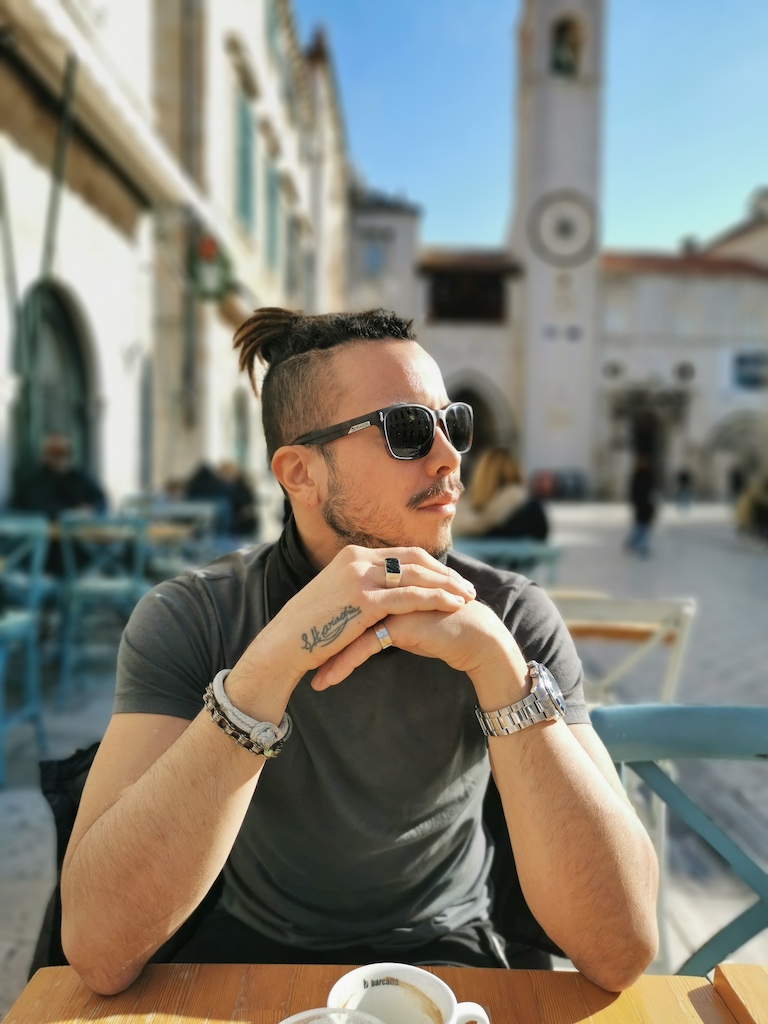
5. And the 3 things you would like to change.
3 things I would change would be: the long, slow and tedious bureaucracy, the lack of support to entrepreneurs and small new companies which are being killed with high taxes mostly; and the focus on building more industries rather than just focusing on tourism.
6. Given your experiences, what advice would you give to any would-be expat thinking of making the move?
I would advise you to learn a bit about the culture and the language beforehand. You are always gonna be welcomed here but it really changes if you are seen as somebody who puts some effort in trying to learn a bit, at least, about their culture and language. People will appreciate it a lot. Also, analyze the industries and business/job opportunities well in advance for a year-round living, normally things tend to change with the seasons so it is good to be some steps ahead in that field.
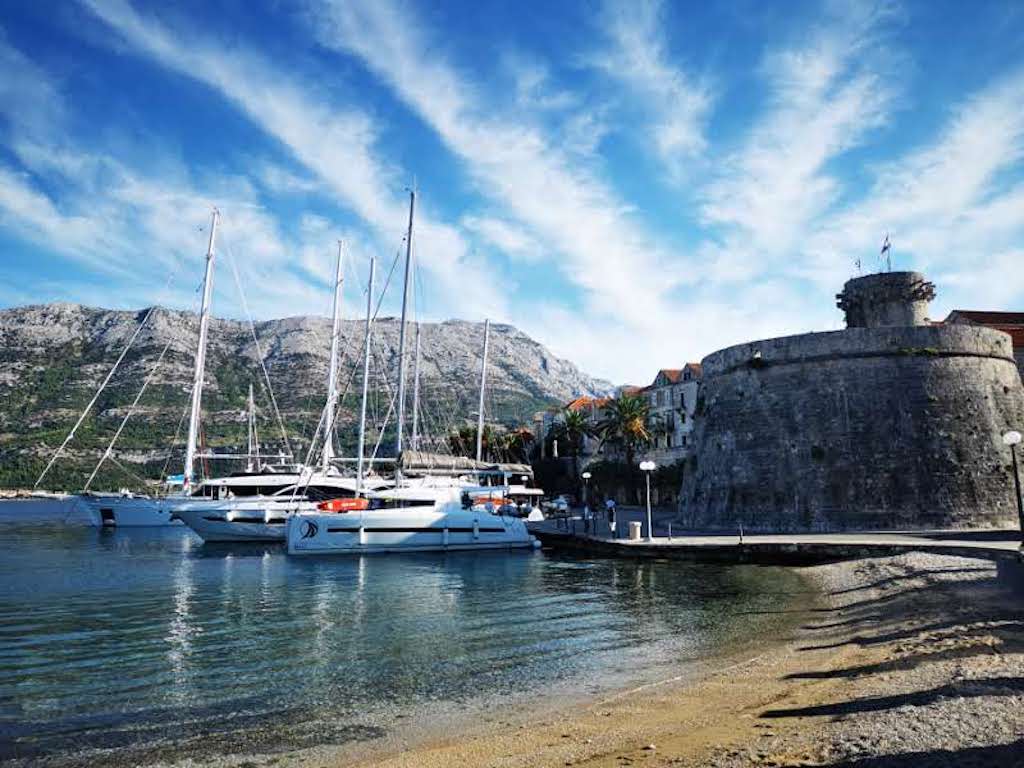
7. The most beautiful place in Croatia, and why?
As a sailor by profession, I dedicated a lot of time to sailing around the Croatian coastline and islands and I have to say that my favorite place is Korčula. It is such a beautiful island full of green all around, amazing lovely bays and impressive historical heritage. Also, since it is very close to the Pelješac peninsula, it is a great place to enjoy some good wines too!
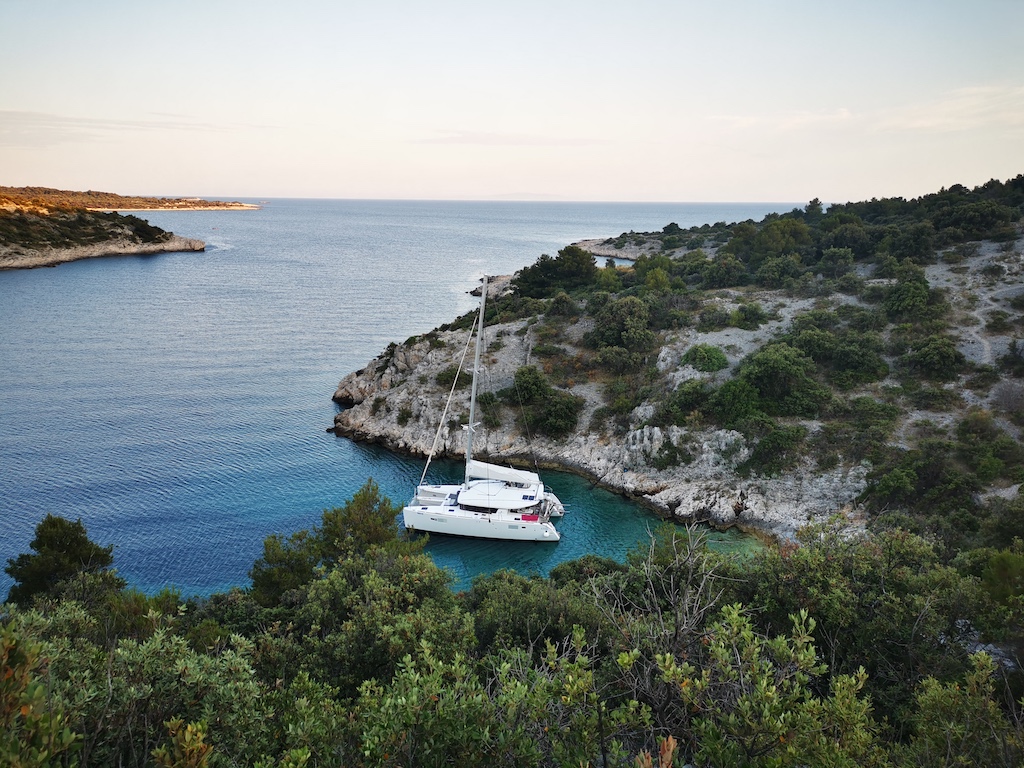
8. Your favourite moment of your time in Croatia?
My favorite moment here I would say was when my mom came to visit me and we went to visit the old house where my grandpa was born and lived as a child.
I live in Split and I am a professional skipper. My Instagram account is @gkmarko where people can see beautiful places around the Croatian coast and can reach me if interested in sailing here!
Are you an expat who would like to be featured in this series? If yes, please contact This email address is being protected from spambots. You need JavaScript enabled to view it. Subject Expat
For more, make sure to check out our dedicated lifestyle section.
Croatia will Continue to Assist Ukraine, Says PM
ZAGREB, 10 May 2022 - Prime Minister Andrej Plenković said on Monday Croatia would continue to assist Ukraine in various ways and that it was "very difficult to imagine" that the crimes committed in Bucha and Irpin were occurring in Europe in 2022.
"Croatia will... continue to provide political, diplomatic, humanitarian, financial and technical assistance to Ukraine in this situation and, naturally, advocate the values we share," he told the press.
He said the visit to Kyiv on Sunday was "carefully planned." "Our support as a government, a people, is evident, visible, I think." He and Foreign Minister Gordan Grlić Radman visited Irpin and Bucha after meeting with Ukraine's leadership in Kyiv.
"The destruction which took place in Irpin, which is a modern city, a city of young families where 100,000 people live, is unbelievable," Plenković said.
In Bucha, a priest showed them a mass grave in a church yard. "Such a crime against the civilian population is horrifying and reminds us of the situation in the Homeland War. It's for utter condemnation, unacceptable."
Plenković and Ukrainian President Volodymyr Zelenskyy talked about a Croatian national taken prisoner by Russian forces. Plenković said the Ukrainian authorities were familiar with the case and would inform the public when there were any news.
Russian media have said that a "Croatian mercenary" has been taken prisoner in Mariupol.
Asked if negotiations would be held with the Russians, Plenković said, "For now, we will talk with the Ukrainians and see what can be done."
The dialogue with Russia and Croatia-Russia diplomatic relations have not been interrupted, he added. "Had we interrupted diplomatic relations, it would probably be more difficult."
Von der Leyen not coming to Mostar
The prime minister also commented on the situation in Bosnia and Herzegovina, which will hold general elections in October although the election law has not been changed.
He said that contrary to media reports, European Commission President Ursula von der Leyen was not coming to Mostar, but that "another high EU official will visit" in the next ten days.
Plenković welcomed the decision of the Croatian National Assembly to participate in the elections, saying that "the Croats should elect their representatives as only then will BiH function well" and calling for dialogue.
He said Croats in BiH were "often victims of electoral engineering and should in no way be considered the culprits for the situation in BiH."
Foreign Minister Grlić Radman, he added, "is regularly in BiH and it's good that he's often there to convey the policy and activities the government is undertaking in the interest of Croats in BiH, and we have been doing it constantly, for years, intensively, systematically, with arguments. We are trying to win over allies for solving the unjust position of the Croats."


